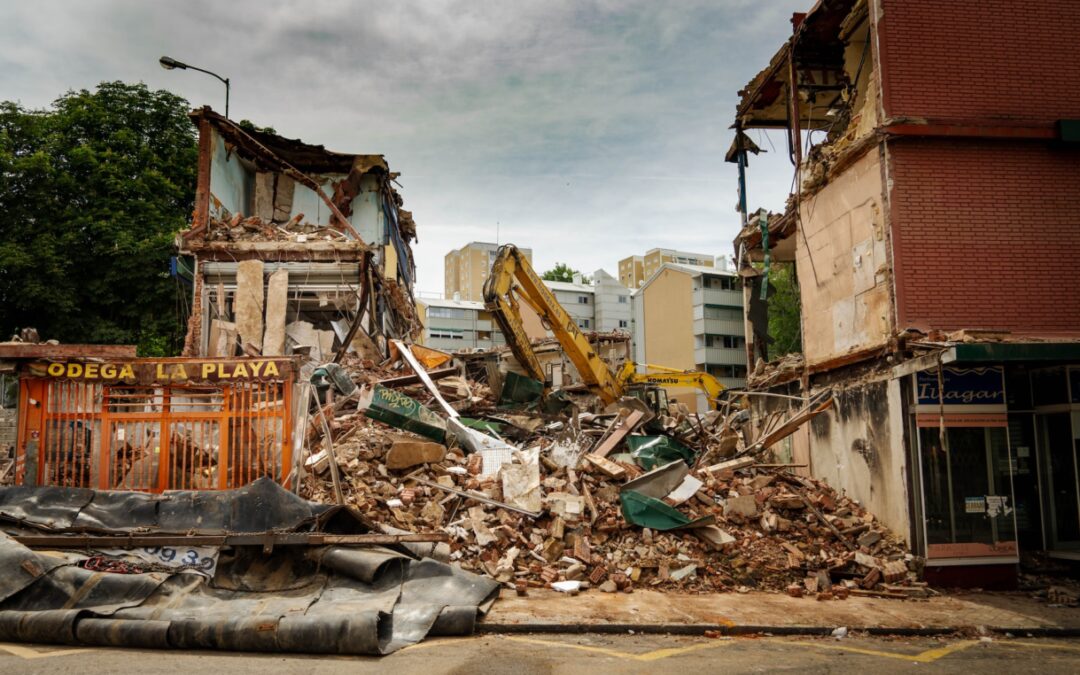What describes the last 3 years of remote work and your company’s return to the office better? Fire drill or earthquake. According to the World Health Organization, there have been 6,950,655 deaths from Covid-19 not including Turkmenistan and North Korea. This is almost 10 times the number of people who have died from earthquakes in the last 20 years. It’s not a perfect analogy, but think about it in terms of its impact on the company whether perceived or actual. Was it a really long fire drill or did something significant happen here?
The Joys of Fire Drills
Most people don’t take fire drills seriously. It’s usually 20 minutes to talk with friends or get in an extra smoke break. I was on a call the other day when an alarm went off in one of the locations. The rest of us continued with the meeting until people came back. It was just an interruption. We’ve all been through it. The drill happens, and we go back to doing what we’re doing, Nothing changes after a fire drill, but what if it did? I’ve only seen this happen once. The building I was in had a different exit when you used the stairs vs the elevator. And as we all know, you don’t use the elevator during a fire. As several hundred people headed down the stairs the first people down reached a door that was locked from the inside. This turned into a bit of a crushing event since people couldn’t go backward. The situation couldn’t adequately be communicated since so many people were just yelling stop and it wasn’t clear why unless you could see what was happening. No one got hurt too badly, but there were more than a few panic attacks. The door was replaced, but otherwise, it was back to business as usual. Earthquakes on the other hand usually change things.
Worst Case Scenarios
August 23, 2011, is the only time I’ve had an earthquake at work. I slept through a 4.0 in California on a business trip once, but I don’t think that counts. Anything under a 5 in California and it might as well be a fire drill. However, a 1.0 in the Northeast United States does get your attention. The geology of the area is different. It was strange feeling the floor move. There was no damage other than a parking garage down the street was condemned because they said it damaged the foundation. I think the building had problems before the earthquake. The earthquake just got a bad rap. It could have been a lot worse.
In 2018 a 7.1 hit south-central Alaska. I was there about a year later. Most of the real damage had been cleared, but there were sections of roads that they just moved because it was easier to start over than to try and fix them. Not everyone is so lucky. In February 2023, Kahramanmaras Turkey suffered a devastating 7.8 earthquake where almost 60,000 people died. 14,000,000 people were impacted and over 4,000,000 buildings were destroyed. Those businesses that survived are starting over. But chances are they will be doing things differently. They may pick a different location, a smaller location, or just go fully remote. They are no longer bound by what was in terms of structure. Sometimes you need a clean slate to realize it’s ok to start over.
A Reason to Change
Despite almost 7,000,000 Covid deaths, many CEOs are still treating the pandemic as a fire drill rather than an earthquake. This is largely because very little physically broke in the process. Yes, there were supply chain issues, but the offices we left in early 2020, in most cases are sitting waiting for people to return to them. Nothing was destroyed other than the idea of work. That was enough for many companies, but not for all.
Eight track tape players and Sony Walkman’s didn’t suddenly stop working. If you had one, I’m sure they would work just fine today. There was a new way of doing things. Some people caught on faster than others. Others were fine with the way things were and held on with both hands until they had no choice.
Unlike fire drills, earthquakes have a way of making choices for you. If all the office space had been physically damaged or destroyed during the pandemic, there would be no return-to-office push like we are currently seeing. Current remote work trends would be expanding even faster. New smaller offices would be built and co-working space would be booming. For many people, it’s hard to let go of old ways when they can’t see a need for change. And sometimes we are looking at an earthquake and think it’s a fire drill.



